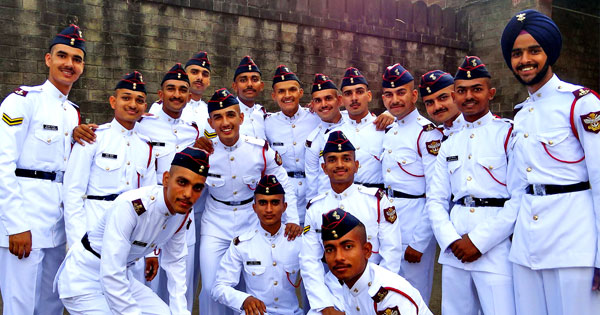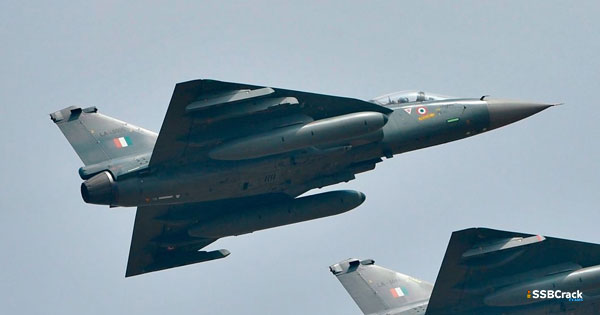Parajumping is a very popular sport among adventure enthusiasts. As popular it is, so rare it is to get a chance to finally do parajumping. And if you are talking about the army, only the best of the best gets a chance to do parajumping. It is compulsory for all the commandos of Indian tri-services.
Parajumping has two popular modes of operation in any military: HAHO and HALO.
HAHO (High Altitude, High Opening):
High Altitude, High Opening jump requires a soldier to jump from heights greater than 12,000-15,000 feet. This technique is also employed where the secrecy of the operation may be compromised by the loud noise of parachute opening at low altitude. The canopy opens within 10-15 seconds of jumping out of the aircraft.
This technique is used to airdrop soldiers when aircrafts are unable to fly above enemy skies without posing a threat to the jumpers. Using HAHO jumps, soldiers can travel up to 50 km under an open canopy, thus entering into the enemy lines safely within 20-30 minutes.
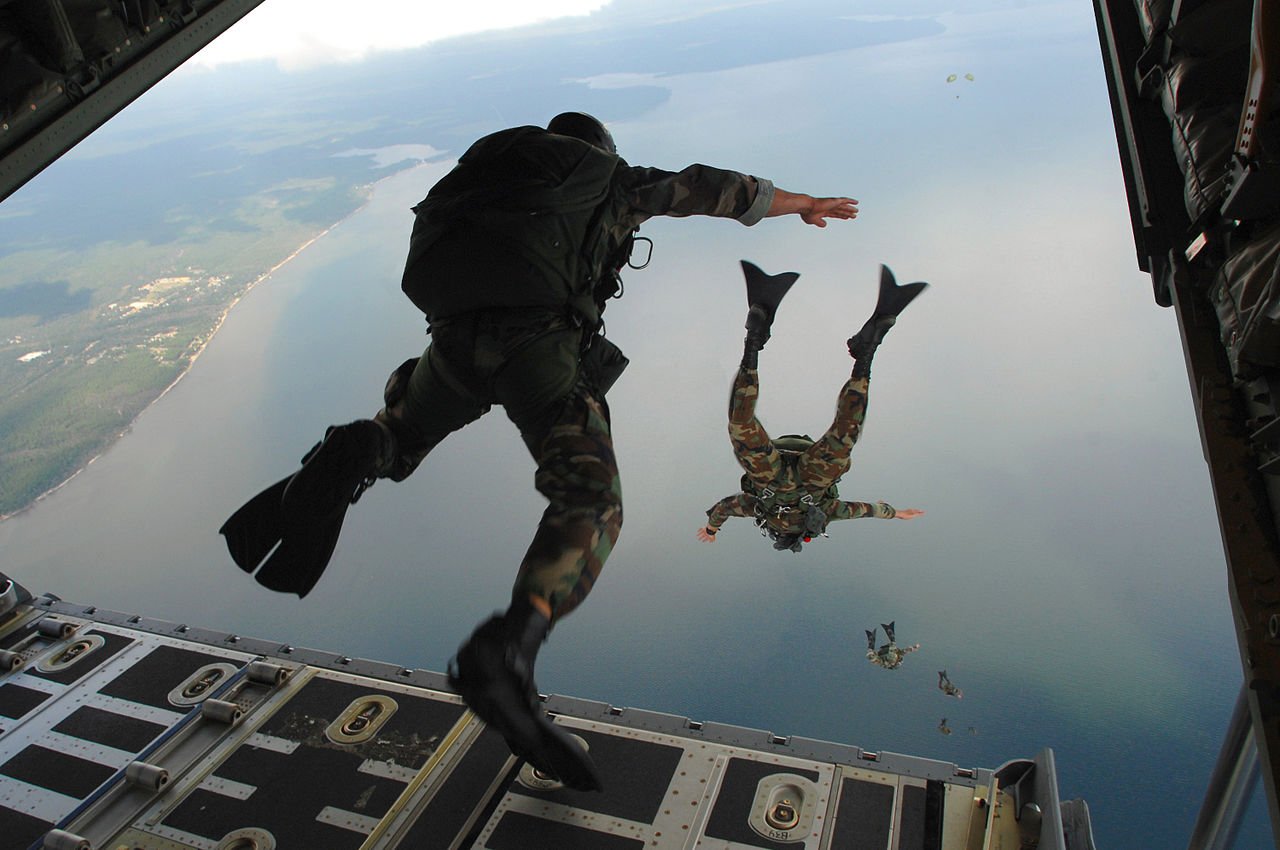
HALO (High Altitude, Low Opening):
In the HALO technique, the parachutist opens his parachute at as low altitude as possible (at about 200-500 meters) quickly to avoid enemy detection. The canopy generally opens after free-falling for a period of time which is generally 2-3 minutes with speeds more than 300 km ph. This technique is also called as Combat Free Fall.

This is performed where the aircrafts can fly over the enemy airspace, escaping the Surface-to-Air missile. HALO jumpers have very high duty altimeters because they have to avoid radar detection and open as low as possible. The jumpers try to stay as close as possible during the jump. This is called ‘tactical jumping’.
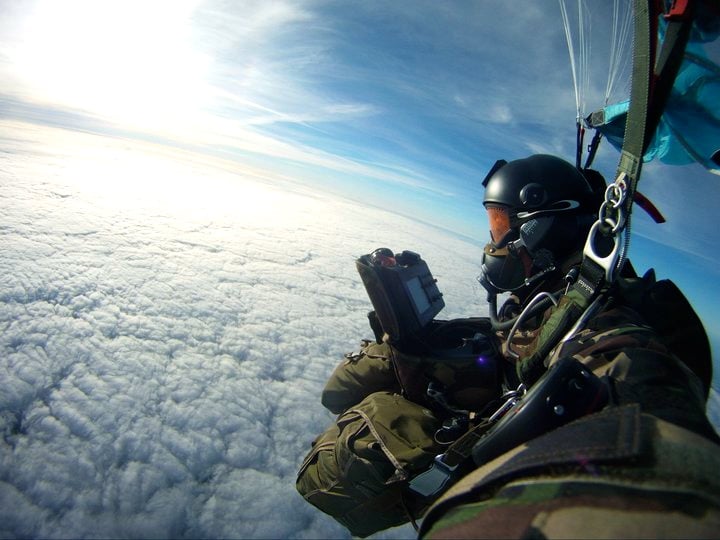
HALO and HAHO jumps are done from such high altitude that it is necessary to use an oxygen tank and mask to remain conscious and specialist clothing to prevent freezing.
LALO (Low Altitude, Low Opening):
Apart from HAHO and HALO, there also exists a jumping technique called Low Altitude, Low Opening. It is famously known as “Static Line Jumping”. In this technique, soldiers generally exit the aircraft in ‘sticks’. Each stick has 10-15 jumpers. As soon as jumper jumps out of the aircraft, the canopy opens automatically within 3-4 seconds of the jump.
This is generally undertaken at heights between 1500 – 5000 feet. The jumper is airborne for 1-5 minutes depending on the height from which he is jumping from.
All the paratroopers need to undergo 5 Static-Line jumps to earn the para-wings. Out of these 5 jumps, 3 are day jumps, 2 are night jumps, including 1 jumps with equipment.
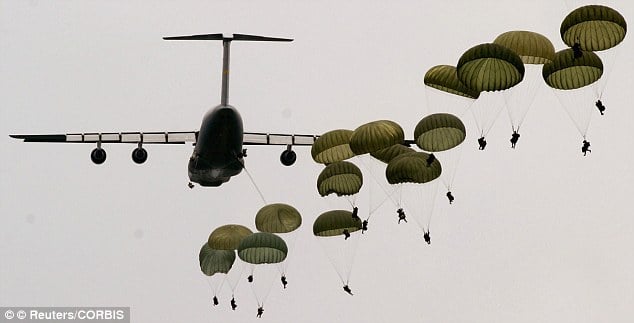
Conclusion:
HAHO and HALO jumps techniques are used by soldiers to enter into enemy lines when the aircraft can or cannot fly over enemy airspace without escaping the surface to air enemy missiles. They go to extremes to keep us and our borders safe. We owe to them our freedom.
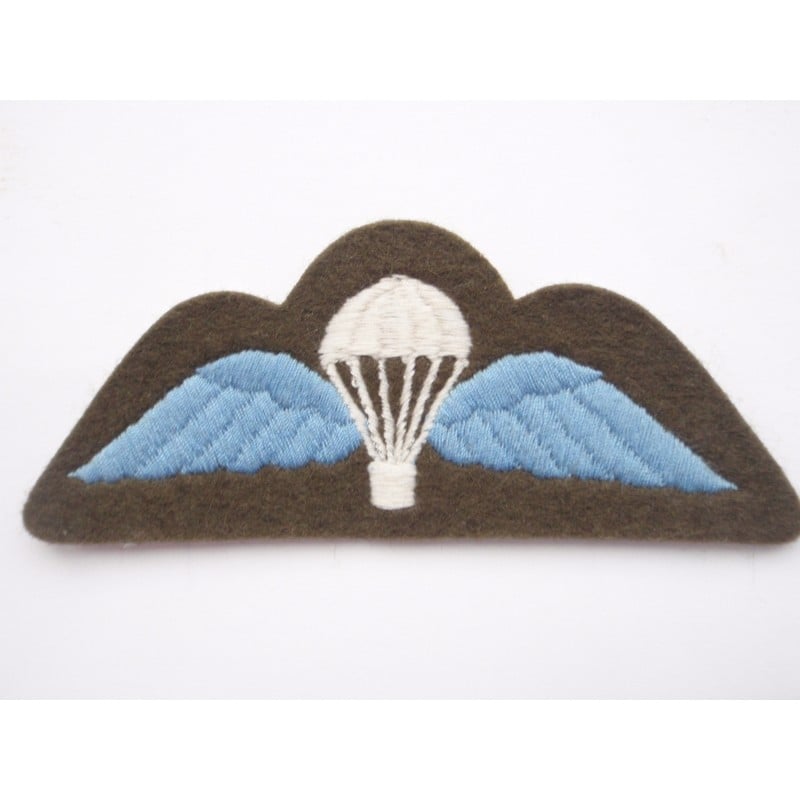
Long Live India!
To crack the SSB Interview, You can join our SSB interview live classes batch and we recommend you to Enroll SSB INTERVIEW ONLINE COURSE. Trusted by thousands of defence aspirants.
Also Read:




